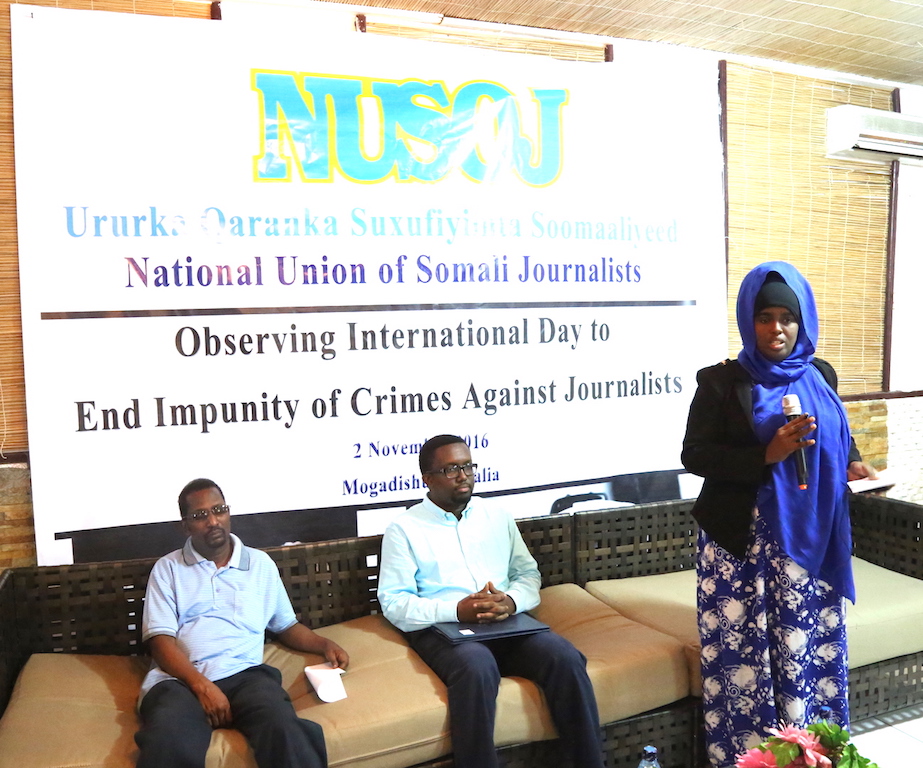Somali authorities, both at Federal and State levels, must take responsibility for ending the growing threat to journalist safety, avowed speakers at today’s roundtable discussions on Safety of Journalists and Impunity of Crimes Committed against Journalists, organized by the National Union of Somali Journalists (NUSOJ) in Mogadishu to mark the 2016 International Day to End Impunity of Crimes Against Journalists.
Setting the tone for the discussion was NUSOJ’s sobering announcement that journalists were heartlessly persecuted since 2012 more than ever, despite hopes that rule of law will prevail over impunity. Abdi Adan Guled, Vice President of NUSOJ and Editor-In-Chief of Xog-Ogaal Daily Newspaper said “more than 35 journalists were killed in four years, a chilling statistic that confirms the importance of our discussions today. We need urgent measures for journalists’ safety, otherwise will all take the same painful path that our slain colleagues took”. “We need a real change in the chilling reality on the ground”.
Nimo Hassan Abdi, Chairperson of Somali Women Journalists Club, vented grave concerns over absence of real action to the safety of journalists. She affirmed that the security situation for journalists in Mogadishu had got increasingly worse in the past years. “We are both legally and physically unsafe in practicing journalism. Female journalists are especially susceptible to assault and violence,” said Nimo Hassan Abdi.
Speaking to the participants, NUSOJ Secretary General Omar Faruk Osman said “range of organized attacks on journalists in the performance of their media work have actual and various effects: the killed journalists are silenced indefinitely, survivors of journalist attacks are less likely to continue their work or at best they are practicing self-censorship and the people are disallowed from seeking and receiving information freely as a result of the frightening effect that creeps in”. “We are witnessing an ensuing impunity that almost always follows a killing or an attack of a journalist which basically makes further killings and attacks more likely. This impunity brings more impunity”.
Participants engaged in candid debates on fundamental rights that are infringed when a journalist is attacked or killed. Cases of attacks and intimidations on journalists engage a number of fundamental human rights as protected by the core international human rights instruments, notably the right to life, the right to freedom of opinion and expression, the right to liberty and security, the right to freedom of thought & conscience, the right to privacy, the rights to freedom of assembly and association and finally the right to an effective remedy or judicial protection.
Partaking journalists talked in great length the dire security situation facing them and stressed the need to get institutional measures to combat impunity concerning crimes against journalists and to catalyze a new and concerted efforts to address journalists’ safety.
The roundtable discussions will be concluded tomorrow with concrete recommendations and actions on how best to tackle widespread culture of impunity. NUSOJ members are carrying out several activities in the run-up to 2 November 2016 to mark international day to end impunity of crimes against journalists.
The union leadership will be attending an international conference entitled on “End Impunity: Turning Words into Action” in Brussels, which is organized by the International Federation of Journalists (IFJ).

